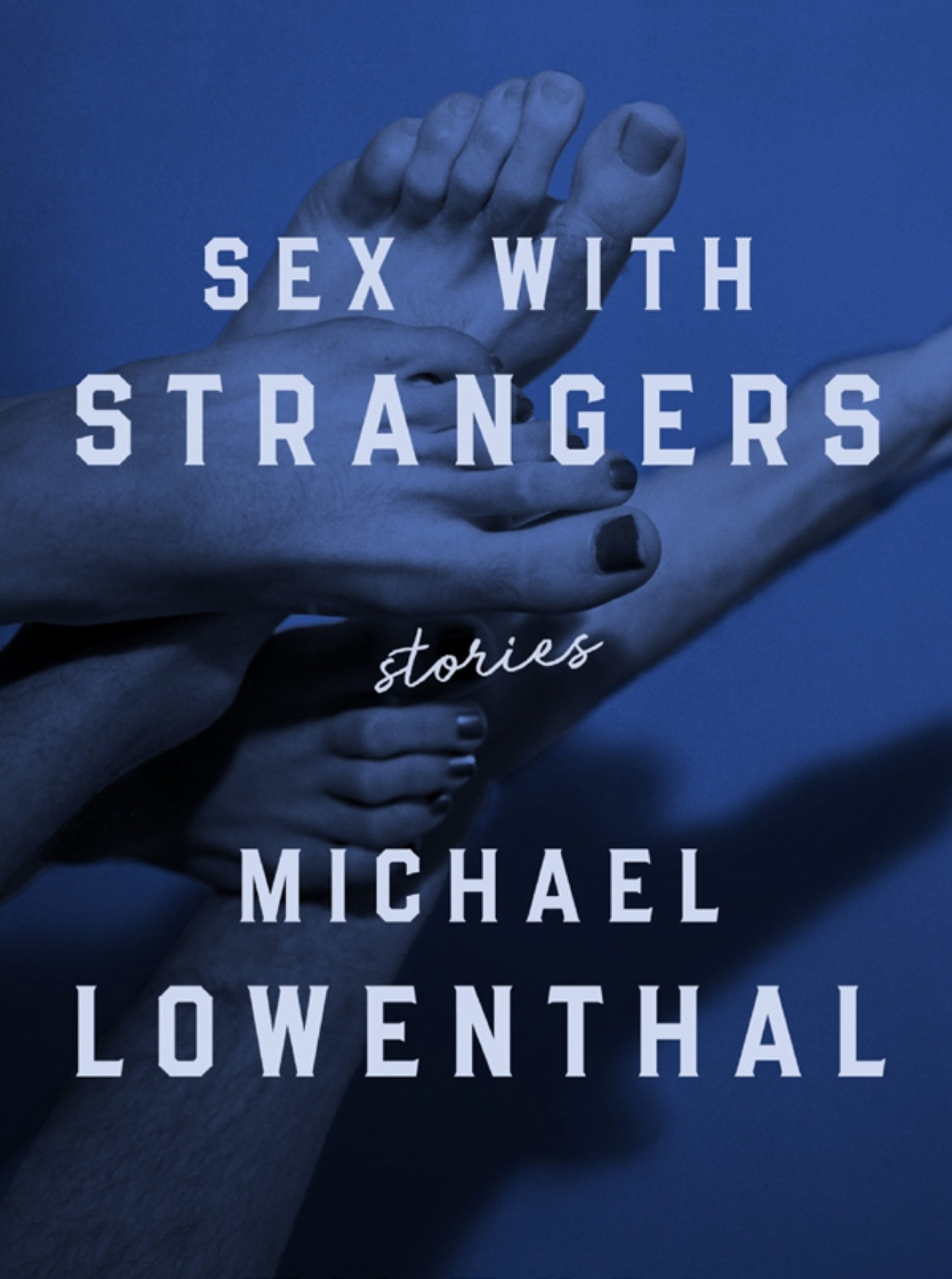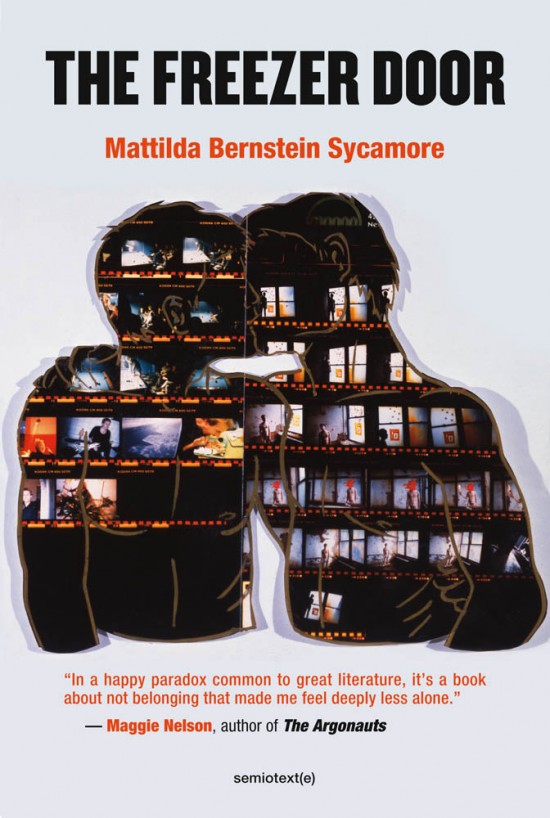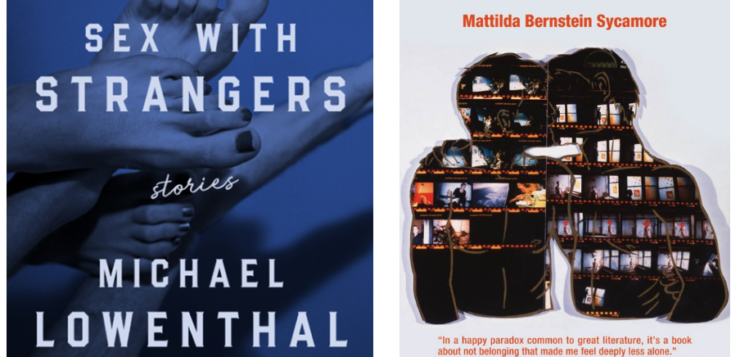AT OUTWRITE 1995, the queer writers’ conference in Boston, an unlikely but lasting friendship was born. Mattilda was a 21-year-old genderblur club kid with a history of radical organizing who felt trapped in Boston except when the Ecstasy hit at 2 a.m. Michael was a 25-year-old former Dartmouth College Woodsmen Team competitor who had recently moved from New Hampshire to Boston, where he edited erotic anthologies to bankroll his attempts to write literary fiction. They struck up a flirtatious, opposites-attract conversation about writing and sex—and writing about sex—a conversation that eventually led them to vegan Chinese food and a visit to the Pilgrim Theater, a grand old movie palace from the 1910s that projected straight porn onto its massive screen overlooking the legendary gay cruising that took place in the aisles and in the seats.
Twenty-six years later, the Pilgrim is long gone—razed to make way for luxury condos—but Mattilda and Michael have both built successful careers as writers. Mattilda, who now lives in Seattle, is the author of three novels and two nonfiction titles, and is the editor of five nonfiction anthologies. Her memoir, The End of San Francisco, won a Lambda Literary Award; her novel Sketchtasy was one of NPR’s Best Books of 2018; and her sixth anthology, Between Certain Death and a Possible Future: Queer Writing on Growing Up with the AIDS Crisis, will be out in October. Michael, who stayed in Boston, is the author of four novels: The Same Embrace; Avoidance; Charity Girl (a Washington Post “Top Fiction of 2007” pick); and The Paternity Test (a Lambda finalist). He has taught at Boston College and Hampshire College, and for eighteen years has been a core faculty member of the MFA in Creative Writing program at Lesley University.
This season, they both have new books out. Mattilda’s is The Freezer Door, a lyric essay that was named a New York Times Editors’ Choice. Michael’s is Sex with Strangers, a short story collection, which The New York Times Book Review says is “studded with memorable flashes of brilliant writing and stunning details.” After all these years, and despite the continent between them, Mattilda and Michael still love to talk. Recently, Michael set up a Zoom session, which Mattilda called into using a landline, and they chatted about their new projects and a wide range of other topics.
 Michael Lowenthal: I want to start by talking about the pandemic. I would say both of our books are about loneliness and yearning for connection, and how that plays out in terms of sex and hookups and relationships, and the pandemic, of course, has taken a huge toll on those activities. In some ways, your book almost seems predictive. I mean, right at the very start, you say: “I remember when faggots kissed hello. We had so much to fear and so we feared nothing.” That line was written before the pandemic, obviously, but it has such a different resonance now, as does your whole project, really, and I’m wondering, how has it been, having this particular book come out in the pandemic? How do you think that’s affected how people have responded?
Michael Lowenthal: I want to start by talking about the pandemic. I would say both of our books are about loneliness and yearning for connection, and how that plays out in terms of sex and hookups and relationships, and the pandemic, of course, has taken a huge toll on those activities. In some ways, your book almost seems predictive. I mean, right at the very start, you say: “I remember when faggots kissed hello. We had so much to fear and so we feared nothing.” That line was written before the pandemic, obviously, but it has such a different resonance now, as does your whole project, really, and I’m wondering, how has it been, having this particular book come out in the pandemic? How do you think that’s affected how people have responded?
ML: I’ve had a somewhat similar experience. A theme that weaves throughout my book has to do with people discovering all the ways in which the partners they thought they were intimate with are actually—and inevitably, in some sense—strangers to them. Discovering the stranger within loved ones, but also discovering the extent to which we’re strangers to our own selves: experiences that force us to reckon with versions of ourselves that we couldn’t recognize before. And I think that’s an experience that a lot of people have been having in the pandemic. I’ve heard a lot about couples, married or otherwise, who suddenly are with each other 24/7, without the break of either or both of them going off to work for a few hours a day, and they’re having to reckon—in good and bad ways—with: “Do I even really know this person?” And then a lot of single people are reckoning with being on their own and not being able to touch or interact with anybody else, not being able to hug or fuck, and having to learn new things about themselves. MBS: In many ways, I think the pandemic has exacerbated this polarization—between the single and the coupled, the healthy and the sick, the safe and the unsafe. Your book is coming out when people are rallying around this idea of getting “back to normal.” My book, in many ways, is about the perils of existing outside normalcy, whereas I think a lot of the stories in Sex with Strangers are about what happens when people are trying to exist inside that normalcy. Would you say that’s true? ML: Maybe it’s about people having their own visions of what normalcy means for them, or some idealized version of themselves or of relationships, and then they often are confronted with the reality that life doesn’t quite add up that way. The frictions that crop up when people, especially queer people, are striving for belonging. Your project has been so much more about rejecting mainstream ideas of what we should belong to, and wanting to create—I guess the word you use a lot is oppositional—spaces where you don’t have to sacrifice certain ideals in order to belong. MBS: I would agree entirely. A question that comes up in your stories is about what I would call the gentrification of gay or queer lives, and this obsession with fitting in—or youth, or perfect bodies—and this craving for acceptance that becomes its own identity. I wonder if you see your collection also in opposition to that narrative of gay assimilation? ML: Yes, I always want to push back against that. I think you and I share the idea that when the LGBT rights movement started focusing obsessively on marriage and getting into the military, it was sort of like, huh? I would rather be seen as resisting that assimilationist impulse and raising questions about it through my stories, even if the characters themselves feel that drive to belong. If I write about that drive, I write about it to interrogate it. MBS: In one of your stories, a married woman is having an affair with a woman, and the way she describes the feeling when they’re together, she says: “We’re the center. Everything else dissolves.” It’s those moments of connection that change your perception about everything, and allow, potentially, for everything to shift, right? ML: Yeah, for sure. Those are the moments that interest me. But let me go back to your idea of the gentrification of queer life. I wonder if you have thoughts about queer literature and/or publishing in our current moment. In some sense, we’re having this amazing explosion of LGBT books and different voices, and many of them are achieving mainstream success as New York Times bestsellers and Booker Prize winners and all that kind of stuff. How do you view that within the context of your ideas about gentrification of culture? MBS: I agree that we’re in a moment when certain queer and trans authors are achieving a kind of access that wasn’t possible even a decade ago—especially for trans authors and queer authors of color. But there was a moment like this in the early ’90s, when queer work was suddenly allowed on mainstream corporate presses, and people were like: “Oh my God, everything’s changing.” And then the door slammed shut. So, I think that’s always a danger when we’re relying on multinational corporations to determine what is considered literature. When the publishing industry decides, they’re still using this outdated, straight-white-Christian-male paradigm, and when we speak on those terms, our work suffers. I do think there is work getting mainstream critical attention now that refuses to conform to those dictates, but how long will this last? ML: I think what you’re saying is true, and you can actually find New York Times articles about the “gay book boom” from the ‘90s. It was really a thing. Some younger folks now have no sense of that history. I was reading an interview with a queer writer who’s twenty years younger than I am, and he is quoted as saying that before 2005, it was almost impossible to publish gay novels, and then, because of Hanya Yanagihara’s A Little Life… MBS: Oh my God. ML: Exactly. He says Yanagihara—and also Garth Greenwell—proved to publishers that it could be worth it to publish gay books, which of course totally erases the history of the time when you and I started publishing. And if we do use the rubric of gentrification, it seems to me that not enough people are asking the question: If we’re only focusing on the books that achieve mainstream success, how does that affect queer writing that’s still positioned on the margins? Which makes me want to get back to what you were saying about stories that resist the mainstream narrative that corporate publishers want to impose. That resistance is something I really respect about your work. The Freezer Door has such an interesting form: it’s a narrative that resists narrative, full of quick cuts that are purposeful non sequiturs, and changes of scene that refuse to ground us in the changing of the scene but just do it. I love that you experiment with that. My own stories are much more conventionally constructed. But I never feel that as succumbing to the tyranny of conventions or of corporate standards; it’s just the kind of narrative that is more satisfying to me. In any case, I just want to say I recognize that you and I, in form as well as in content and emotion, have differences in our work. But I don’t put a hierarchy on it. I don’t think one way is greater or lesser. MBS: I would say that I’m not interested in creating new hierarchies; I want to end all hierarchies. And I think our relationship is interesting in the sense that it wasn’t formed through similarity—we could have a relationship as people coming from different perspectives, living different lives and having different ideas about politics and gender and writing and intimacy and pleasure that sometimes intersect and sometimes go in different directions. Your final story in Sex with Strangers is about someone taking care of his mentor, a writer dying of AIDS, and the history of their relationship, which is also based on difference as well as sameness. The mentor is always trying to get the younger guy to sleep with him, and you write: “He was my mentor. I wanted him to want me for my writing.” Maybe you’re pointing to a larger idea of writing as its own form of desire and worldmaking and culture and potential intimacy and engagement with the world. ML: For sure. It’s weird how the act of writing can be so lonely—sitting by yourself in a room—but it can also create the most profound connections. And that makes me think of the part near the end of your book where you talk about losing friendships because of having written about certain people, and you say that your relationship with your writing is the most consistent and nurturing one in your life. I found that really striking. The pieces I’ve been working on lately are all nonfiction, and for the first time I’m going to have to confront writing some stuff about family members that might make them uncomfortable, but you go right there, not only with friends but also, as you’ve done before, with your mother and father. As I’m reading your work, I always wonder, how does that feel? Is it satisfying? Is it terrifying? MBS: I would say that I write in order to stay alive, and so I want to express everything I’m experiencing. Everything I’m most afraid to say is what I need to say. When I feel like I might die if I say something, that’s what I need to say—so I don’t die. ML: You also critique masculinity a lot in The Freezer Door. There’s this really forceful part where you say: “Sometimes I think the main tension among fags is between those who see masculinity as a burden and those who see it as a pleasure, between those who see masculinity as a refuge and those who see it as refuse, masculinity as an ideal and the idea of refusing masculinity.” Obviously, there is some seriously toxic masculine shit in our culture that needs to be critiqued and overcome. But if we go back to your idea that belonging shouldn’t be predicated on everybody having to be the same but can be about celebrating and honoring one another’s differences… when I think about feeling masculine myself, which I basically do, I certainly hope my masculinity doesn’t depend on denigrating anybody else’s feelings or gender expression. As alienated as you feel from masculinity, can you recognize that for some people, what we deem as “masculine” is actually the right fit? For me, being something else would feel weird. Do you know what I mean? There’s one moment later in The Freezer Door, when you say, after a particular experience, that maybe there is some part of masculinity that could be pure. Do you remember that section? MBS: Yes, I stand up after sucking this guy’s dick in the park, and just before we start to make out, I think about the way I’m holding his head with so much passion and… is this a form of masculinity that could be pure? I think this connects to an idea in your book that public sex with strangers makes you a stranger to yourself. Growing up, way before I knew what the hell a “faggot” was, kids were calling me one. Coming into a queer identity, for me, has always been about rejecting mandatory masculinity, which requires assimilation into dominant norms of conquest, basically, and I think coming of age as someone called “faggot” and “girl” and then realizing: oh, I can embrace all of this as a form of resistance to everything and everyone who wants me dead. This is what it meant to be queer. And then, when I realized that gay culture worshiped at the throne of traditional masculinity, this is a shock that I’ve never recovered from. So, for me, I want to create the possibility for everyone to experience our gender and sexual and social and political identities in all of their complications and nuance and messiness and potential for transformation. ML: Amen to that. Mattilda Bernstein Sycamore: I wrote The Freezer Door in what I considered the present, and I expected it to come out in a somewhat similar time, and then, one year ago, everything changed. But just before the book came out in November, people were starting to tell me that it was so relevant to this particular moment, and, honestly, I didn’t know what they were talking about. And then it came out, and I think the themes of loneliness and alienation and trying to find connection in a gentrified city that forecloses the possibilities of public space, but there’s always that yearning anyway—all of this has really resonated with people, I think, in a wider way than it would have otherwise. This pandemic has taught people that we’re all lonely and alienated, right?
Mattilda Bernstein Sycamore: I wrote The Freezer Door in what I considered the present, and I expected it to come out in a somewhat similar time, and then, one year ago, everything changed. But just before the book came out in November, people were starting to tell me that it was so relevant to this particular moment, and, honestly, I didn’t know what they were talking about. And then it came out, and I think the themes of loneliness and alienation and trying to find connection in a gentrified city that forecloses the possibilities of public space, but there’s always that yearning anyway—all of this has really resonated with people, I think, in a wider way than it would have otherwise. This pandemic has taught people that we’re all lonely and alienated, right?





